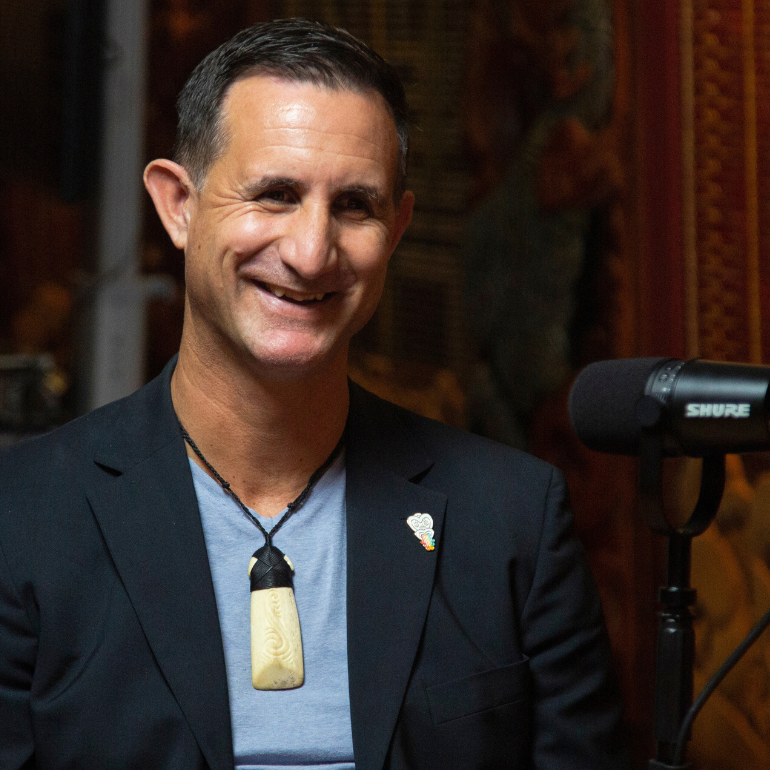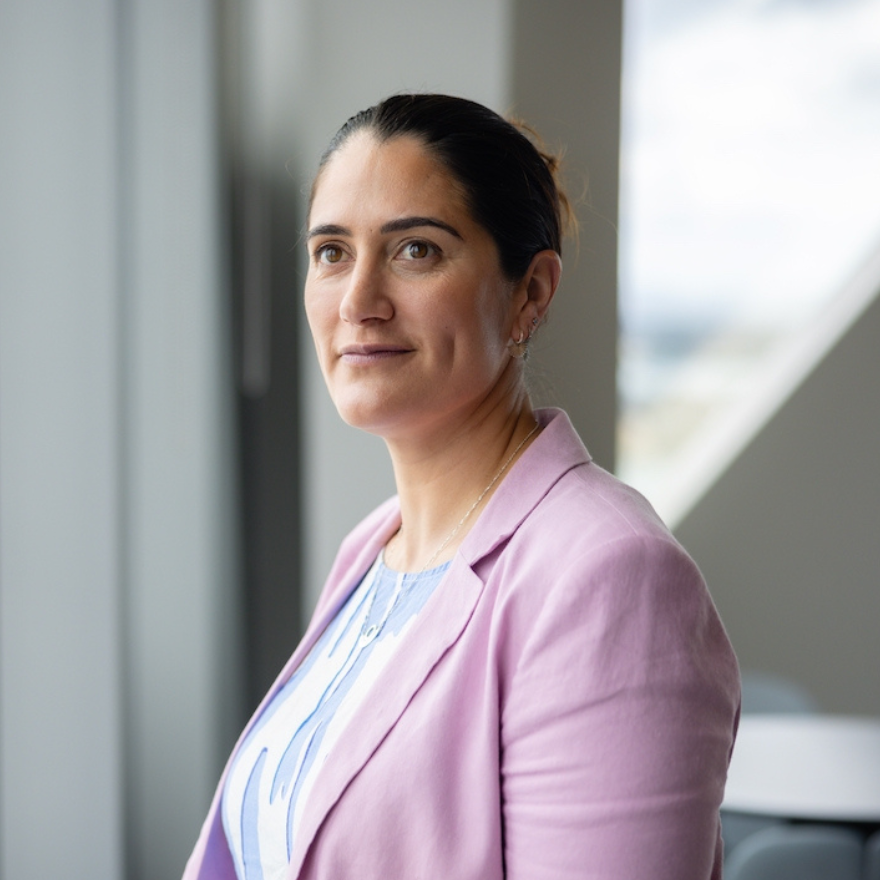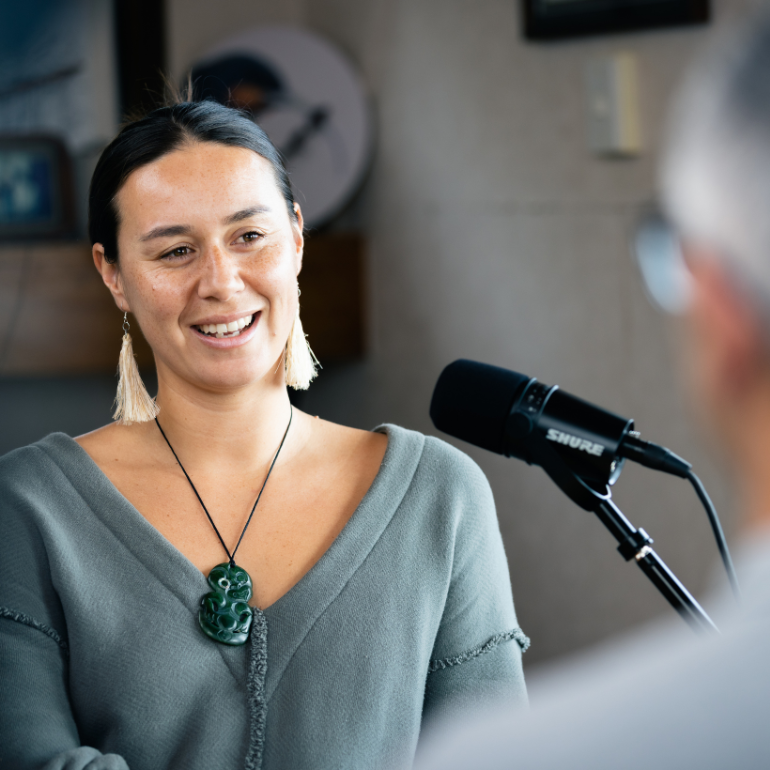Growing up on Aotea, a sparsely populated island 90km north-east of downtown Auckland, Tama Toki (Ngāti Wai, Ngāpuhi) made do without a lot of the things people take for granted. In particular, power and water from a mains supply.
“No TV, no KFC,” Toki laughs, recalling a time when he once thought he would leave Aotea and never look back. “Life was pretty hard, but I realised how special the place is.”
Toki is the founder of two businesses exemplifying the unique qualities of the island – skincare range Aotea Made and the still-in-development clean energy company, Aotea Energy. He says although they are vastly different products, the businesses are “wedded by our philosophy and core mandate, which is to help our people on Aotea with jobs, scholarships and access to energy.”
Both are influenced by his upbringing at the side of his grandparents. His grandmother was a rongoā practitioner, who understood the therapeutic and medicinal properties of Aotea’s native plants. A bubbling pot of kūmarahou on the stove every winter, to ward off colds and bugs, was the norm.
“I’m not sure people realise just how special some of our native flora is, the plant constituents and active compounds,” he says. “This country experienced 110 million years of isolation, so the biodiversity here is very unique. Our ancestors knew it. There’s a lot of history around the practice of rongoā and understanding innately what can be used in the ngahere to heal.”
As a growing commercial venture, “anecdotal” evidence (a common Western framing of mātauranga Māori) isn’t enough to meet the rigorous legal standards around skincare, especially when making claims of an ingredient’s efficacy. This means clinical studies are necessary. Even so, says Toki, tikanga Māori is necessary to guide the approach.
“We were looking into doing some clinical trials with a university, but it didn’t feel appropriate doing that research with an entity where the IP would sit with them. So, we thought we’d find ways of understanding the mātauranga ourselves, in a clinical sense, but doing it in-house. It’s not for us to guard, just to ensure it’s researched appropriately.”
While Toki started off selling his products at farmers markets, today Aotea skincare has a flagship store in Auckland’s Commercial Bay precinct. The chic decor and surrounding fashion boutiques are a far cry from the gumboots and hair nets that are the norm back on the island, where ingredients are all sustainably grown and harvested on-site at their farm, then handmade and bottled in small batches. All of the facilities run on solar power.
The necessity of clean, self-reliant solutions like solar on Aotea has led the entrepreneur to think seriously about what he calls the “energy trilemma”: energy equity, energy security and environmental sustainability.
He believes a micro-grid, where people can also choose to share excess with other whānau, will solve that. “Our ambition is to look at deploying a peer-to-peer, carbon negative grid. The nature of renewable energy is it’s always intermittent. So if your batteries are full and the sun’s at its zenith, and you’ve got all this power, how do you share it? So we turned to tikanga, to a koha system. Ultimately, if there is free power, that should go to kuia, kaumātua.”
While the island provides the conditions, both perfect and imperfect, for prioritising sustainability, the need for mātauranga-based climate solutions seems more immediate than ever. After living in such close proximity to the land for so many years, Toki has seen the changes in climate first hand. “For example, mānuka shouldn’t bloom in November but it blooms all the way through the winter now. You get pockets of warmth and it thinks summer’s here, so it opens up, and then it closes again. That’s only been happening in the last five years.”
He has witnessed cicadas emerging from the ground in July, another phenomena usually confined to the summer months, and in winter, the recent lack of frosts – a regular feature of his childhood on the island. “You’d get up real early and you’d have to scrape the ice off the windscreen. I haven’t had that for years.”
For things to change, he says, understanding mātauranga as not just a body of knowledge, but a way of approaching knowledge, is crucial. “When you look at trying to address climate change, it’s too analytical. It reduces the climate into parts, but our climate is so comprehensive.”
He remembers hearing tohunga Rereata Makika talk about being involved in a project testing water quality. While the scientists took water samples, Mahika instead listened for the sound of kōtare, who make burrows in the clay next to waterways. If the cries of their young are absent, it means the mauri of the waterway has been undermined and the water is compromised. “Within indigenous models and approaches, you look at the system as a whole to help you arrive at an answer.”
It's this philosophy that has underpinned his approach to energy generation, growing and harvesting, and philanthropy. His tip for businesses willing to lean into Te Ao Māori and Māori knowledge systems: check with mātanga Māori that your practices are sound and always be guided by tikanga. “Know what you’re doing and why… If you don’t have a strong value system, it’s hard to make decisions.”
He adds that tikanga can’t be left on the shelf as an “ornamental idea”.
“It needs to live and breathe. That’s the really exciting thing around Māori enterprise.”
Aotea Made
- Therapeutic skincare range using native active ingredients.
- Established in 2017.
- 10 products featuring hero ingredients mānuka, kawakawa, kūmarahou and harakeke seed.
- Distribution in New Zealand, Australia, Japan and Hong Kong.
- Ingredients sustainably grown and harvested on Aotea.
- Extraction, production and manufacturing facilities 100 per cent solar powered.
- Mana whenua owned and operated.
- Founder Tama Toki raised on Aotea with his grandparents, living close to the land and learning about rongoā Māori, traditional healing practises.
- Uses published research as well as conducting own trials to determine active plant agents and the beneficial effects on the body, topically and internally.
- Own clinical trials ensures research is conducted appropriately to tikanga Māori values ie IP remains accessible and not owned by an institution.
- Provides scholarships to Aotea rangatahi to attend Auckland Grammar.
Challenges
- Creating a business that supports community as well as contributing to the economy.
- Maintaining sustainable practices that have low impact on climate and environment.
Aotea Energy
- Still in development.
- A smart home battery and software, connecting to a peer-to-peer, carbon negative grid.
- Decentralised, cost-effective, clean energy infrastructure for New Zealanders as an alternative to the legacy grid.
- Controlled remotely via app that monitors consumption, battery health and renewables generation.
- Will allow the user to programme how much power their smart battery can trade and share.
Challenges
- Creating clean solutions. Globally, the energy sector is the largest contributor to greenhouse gas emissions.
- Many people in rural areas in Aotearoa experience energy poverty.


